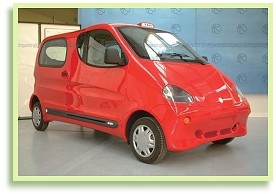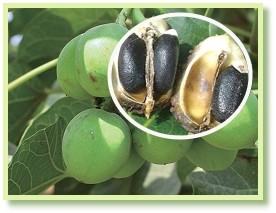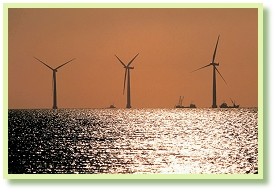Compiled from Supreme Master Television
The first car in the world propelled by compressed air is scheduled to roll down India's streets next year. Tata Motors, India's largest automakers, will use pioneering technology developed by former Formula One engineer, Guy Negre. Compressed air pushes the engine's pistons. Fossil fuels are used only to power the Air Car's compressor, resulting in very low carbon emissions. Refueling is easy: Either plug the car into a source of electricity or “fill up” for about US$2 at a gas station equipped with a custom air compressor. This environmentally friendly vehicle can generate a top speed of 110 km per hour (68 mph) with plans to be manufactured in South Africa, Germany and Israel. (Episode #285)
At this year's Paris International Air Show, Airbus representatives said that the company's newest and largest plane is also its most energy efficient. The Airbus A380 is a superjumbo jet designed to carry approximately 550 passengers. In response to increasing global concern about carbon emissions, members of the airline industry have stepped up. Airbus says that the A380 meets nearly half the 2008 target CO2 emission standards set by the European Union. (Episode #282)
In the first project of its kind in Australia, Melbourne's Tullamarine Freeway is being fitted with solar panels on its sound barrier panels. The power generated will provide up to 10% of the electrical needs for a group of streetlights receiving the power. What a bright idea! (Episode #279)
The native habitat of Jatropha, a valuable hedge plant, is in the Caribbean, but Portuguese traders brought it to Africa and Asia hundreds of years ago. Nowadays Jatropha is being hailed as a potential alternative to fossil fuels. The seeds of Jatropha Curcas can be used to make biodiesel fuel. Jatropha grows readily and yields four times as much fuel as soybeans, and more than ten times that of corn. One acre of the plant produces six and a half barrels of easily processed oil. This fact was not lost on the British company, D1 Oils, which owns 385,000 acres of Jatropha from Swaziland to Indonesia. D1 Oils hopes to double its holdings by the end of 2008, and many other oil companies have similar plans. Biodiesel made from Jatropha is both economically and environmentally friendly. According to a study done in the US, biodiesel reduces net carbon dioxide emissions by 78%, compared to standard diesel fuel. (Episode #273)
An estimated 500 solar energy exhibitors are convening in Germany this year for Intersolar 2007. The three-day convention is Europe's largest international trade fair for solar technology. It features photovoltaics, solar thermal technology and solar architecture. People come from 90 different countries to attend. As a world leader in solar power generation, Germany currently produces 55% of the world's solar energy and continues to develop its renewable energy sources. (Episode #282)
Samsoe Island, off the coast of eastern Denmark, has become a model for preventing global warming. Since 2000, the island's inhabitants have generated 100% of their electricity needs from just 11 wind turbines. Solar panels, hay and biomass also provide 70% of the heating for the 4,200 people living on the island. Soeren Hermansen, head of the island's sustainable energy project, stated, “What is unique is not the installation of turbines or solar panels. It's the fact that it is not the electricity companies or large multinational corporations that are behind the project, but rather a community of ordinary involved citizens.” Now Samsoe hopes to take the next step: it wants all the island's vehicles to operate on rapeseed oil or hydrogen generated by wind power. (Episode #276)
In an effort to address New York's CO2
emissions, Mayor Bloomberg announced a pilot project for solar power
in New York. Using solar panels installed on city-owned buildings, the
new project will reduce carbon emissions by an estimated 320 tons per
year. Other plans to reduce carbon emissions include a multi-year proposal
to replace the city's taxis with hybrid vehicles, and a switch to heating
city buildings with a biodiesel blend by next summer. (Episode
#282)
| ||||||||||||||||||||



